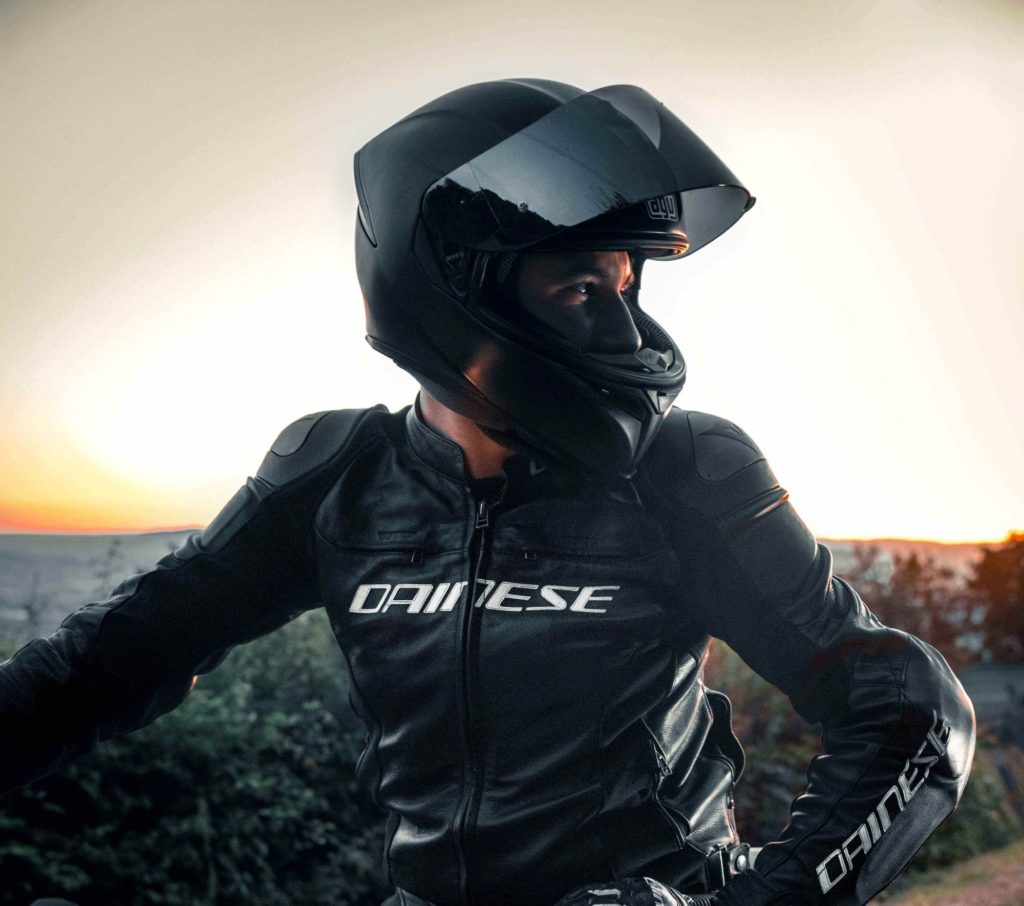What Are Virginia’s Motorcycle Helmet Laws?

Virginia Motorcycle Helmet Laws
Every year, thousands of people in the state of Virginia sustain injuries as the result of motorcycle accidents. If you ride a motorcycle, you need to know how to keep yourself as safe as possible. Helmets are one of the best ways to protect yourself because head injury is the leading cause of death for motorcyclists involved in crashes. Virginia motorcycle helmet laws exist to protect you in case of an accident.
Riders without helmets are much more likely to be seriously injured or killed in motorcycle crashes and commonly sustain serious injuries such as traumatic brain injury. Motor vehicles that strike motorcycles can significantly damage the bike, the rider, and the passenger. Wearing a protective helmet with a face shield or an open-face helmet and good eye protection can reduce injuries and fatalities for motorcycle riders.
Understanding motorcycle laws and how to properly wear and choose a helmet can provide protection and peace of mind. But sometimes, there is simply no avoiding an accident caused by someone else, even if you are doing everything right.
If you or a loved one have been injured in a motorcycle accident, contact Commonwealth of Virginia personal injury attorney Steven Oser today. You can receive a free case evaluation and the information you need to make an informed choice in pursuing your motorcycle accident case.

Common Injuries Caused in Motorcycle Accidents
The federal department of transportation takes motorcycle accidents seriously. Insurance companies also understand the dangers, so they may offer discounts for safe driving. The Code of Virginia and the state’s DMV (the Virginia Department of Motor Vehicles) require the use of proper DOT (Department of Transportation)-approved or ANSI (American National Standards Institute)-approved motorcycle helmets for injury reduction. Common injuries to motorcycle operators and their passengers include:
- Traumatic brain injuries
- Spinal cord injuries
- Internal injuries
- Fractures
- Road rash
- Lower extremity injuries
A helmet won‘t protect you from all of that, but you can reduce your own injuries by wearing one, watching out for other motorists, and following the laws and guidelines of Virginia and the U.S. Department of Transportation. You can also seek fair and just compensation if you are injured in a motorcycle accident.
By contacting personal injury, motorcycle, and Virginia truck accident lawyer Steven M. Oser P.C. today, you can seek the support you need and learn more about Virginia state law and how it affects what you can and can‘t do on your motorcycle. Wearing a helmet is part of that, and proper helmet usage is one of the best ways to reduce many of the common injuries.
Frequently Asked Questions About Virginia Motorcycle Helmet Laws
What are Virginia motorcycle helmet laws?
Virginia motorcycle helmet laws are designed to reduce the risks for motorcycle riders. They address the type of helmet you can wear, the use of a reflector, what applies to a moped, and ways to provide motorcycle deaths, along with other aspects of highway safety.
Do you have to wear a motorcycle helmet in Virginia?
You have to meet the proper safety standards for motorcycle safety in Virginia, including wearing a helmet. If you don’t wear a helmet and you’re involved in an accident, you could be facing issues with contributory negligence.
Why are motorcycle helmets required in Virginia?
Motorcycle helmets are required in Virginia because they reduce the number of motorcycle accident deaths and the number of traumatic brain injuries sustained by motorcycle riders.
Can you wear any helmet on a motorcycle?
You can’t wear just any helmet on a motorcycle if you’re riding in the Commonwealth of Virginia. You need to choose one approved by the ANSI or DOT, because those helmets will protect you properly.
How do you know if a helmet is road legal?
DOT or ANSI approval shows that a helmet is road legal. You also want to purchase your helmet brand new because you don’t know the history behind a used helmet. Motorcycle helmets that have been in an accident, or those that have been dropped onto a hard surface, can lose some of their protective abilities. It’s better to avoid that risk, and also to buy the highest quality helmet you can afford.
What are the risks of not wearing a motorcycle helmet?
If you’re in a motorcycle accident and you aren’t wearing a helmet, you can face contributory negligence claims that could reduce or eliminate the amount of compensation you could otherwise recover. You may also have injuries that are much more severe, including a traumatic brain injury, or spinal cord injury. While a helmet doesn’t guarantee avoiding these issues, it greatly reduces your risk of serious head injury or death in a motorcycle accident.
What are the best motorcycle helmet tips for maximum safety?
For maximum safety, consider the following motorcycle helmet tips:
- Always buy a brand new helmet.
- Choose the best quality helmet you can purchase.
- Replace your helmet if it’s in an accident, or if you drop it.
- Wear your helmet every time you ride.
- Always fasten your helmet securely.
- Make sure your motorcycle helmet is DOT or ANSI approved.
- Abide by all Virginia Motorcycle Helmet Laws.
Do You Have Questions about Virginia Motorcycle Helmet Laws?
Call Motorcycle Accident Expert Steven M. Oser Today!
If you or a loved one has sustained injuries in a motorcycle accident, whether or not you were the person operating the motorcycle, you can request a free consultation with our law firm today by calling 1-(757) 539-4127, or complete the online contact form, to speak with Virginia motorcycle accident attorney Steven M. Oser P.C.
Steven M. Oser is an experienced personal injury attorney and Virginia car accident lawyer serving Suffolk, Windsor, Franklin, Ivor, Wakefield, Waverly, Surry, Smithfield, Courtland, Chesapeake, Virginia Beach, Norfolk, Portsmouth, and all of Hampton Roads. He can provide you with a free case evaluation and handle your case successfully.
